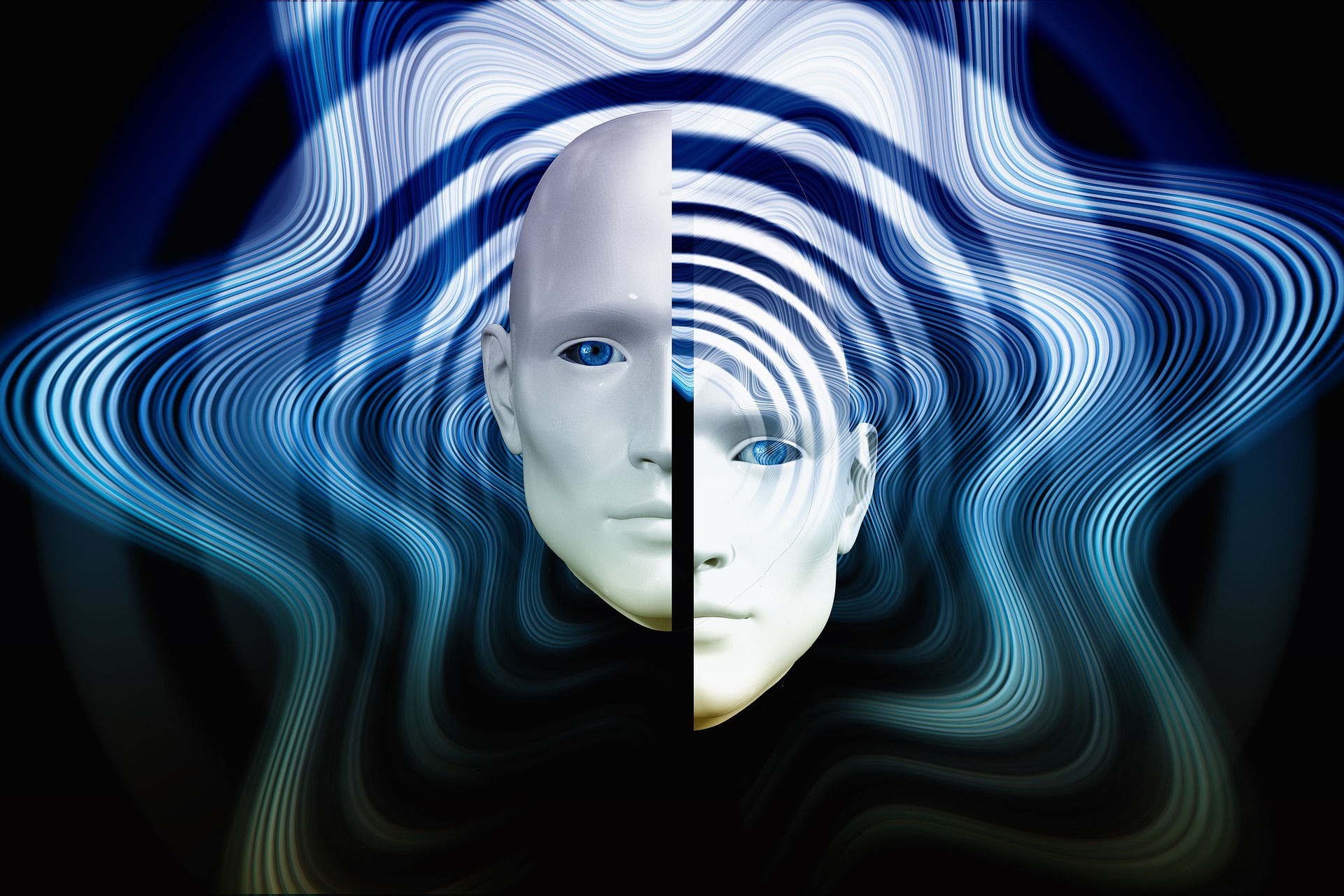
It’s fair to say that everybody has a psychological complex of some sort or other. When mental health issues are left untreated, complexes become neurosis. That’s when the real problems start!
Complexes are the core patterns of behaviour, emotions, memories, perceptions and desire that help us function in life. When these aspects of consciousness become split off from conscious awareness (self-ego axis) and fall into the unconscious.

Psychological complexes, therefore, can influence how you think, feel and behave. At the root of behavioural patterns (habits) are beliefs and expectations the ego has accepted. Such aspects of consciousness are stored in the personal unconscious for the ego to draw on them when they are required.
Oftentimes, programmed patterns of behaviour stored in the personal unconscious are destructive – like the superiority complex. When a complex becomes pathological, they can play havoc with your relationships and ability to function in the world.
It didn’t occur to me at the time, but I went through a period of having a superiority complex. I was in my late twenties and competing against co-workers with law degrees. I didn’t go to University.
Up until that point, the stronger force in me was actually an inferiority complex. My internal belief – seeded by my parents, teachers and peers in childhood – failed to recognise I was more intelligent than I gave myself credit for.
The school environment did not suit my style of learning. Nor did it engage me. In a work environment, I thrived.
Not only did I realise I could compete with degree-holders, but it was also proven I could outperform them. I was promoted above other co-workers, asked to do side projects and even given the responsibility of writing work instructions and training programs.
My ego had been well and truly stroked. My ego, of course, inflated. Like a cock. And I was a right cock!
I unwittingly developed a sense of entitlement, self-importance and secretly believed I was better than others. Sometimes, I would even try to discredit other people’s opinions and try to put them down.
These are all symptoms of a superiority complex.
When I reflected on my past, I recognised that a lot of other people – especially people with a university education – rarely accepted my thoughts, ideas and opinion. It used to annoy me that I was not able to voice my feelings. Granted, my views were often different to the mainstream view, but that’s because I see the world in a different way.
To cut a long story short, I didn’t want to be like the stuck-up degree-holders that acted as though they were better than everyone else (not all degree-holders act this is way by the way). It came to pass that I detested anybody that showed any sign of arrogance or ego-inflation.
What I now realise is that archetypal energies were trying to emerge in me. The split-off fragments of consciousness were trying to drag me out of an inferior complex. Unconscious content will often reveal itself to us in characteristics we do not like in other people.

Psychologist Alfred Adler first described the superiority complex as a defence mechanism to disguise feelings of inadequacy.
Adler believed an inferiority complex was a neurotic phenomenon which prompted individuals to overcome their feelings of inadequacy by creating the illusion they are better than other people – or are capable of achieving things they do not have the skills, personality or knowledge to do.
Personal sentiments emerge in childhood. Our earliest experience typically consists of failures and unrealistic comparisons between ourselves and adults.
In a developing child, feelings of inferiority can actually serve as a catalyst for transforming weaknesses into strengths. Adler described the quest for “compensation” can drive some children to overcome weakness and achieve their goals.
For this to happen, a child typically needs encouragement from their parents and teachers to work hard. They need to be educated in the right way. In rare cases, children will recognise the failings of their parents and are driven by willpower to succeed.
The normal process of psychological development will nurture an understanding that imperfection is part of life. Success comes when you master relevant skills or develop an aspect of your ego that can cope with the outer world.
It’s important to understand that you can’t be the best at everything. It doesn’t matter that you are not good at certain subjects or tasks.
When a child is not given the right education and encouragement, however, they are predisposed to developing an inferiority complex.

If attempts at compensation fail, it may result in overcompensation. Here the child will focus their attention on something they can achieve to fill the void left by shortcomings in other areas.
This same rule applies to life. When somebody is not getting enough love, for example, they will seek comfort elsewhere; food, alcohol, drugs, and promiscuity are common.
When an inferiority complex is allowed to fester, it can have disastrous consequences. For example, a teenage boy with an inferior complex is culpable to do something extreme and stupid when chided by his mates.
When the attempt at overcompensation fails, or somebody feels as they are not accepted as part of a group, or even for their uniqueness, the inferiority complex will deepen. The lack of self-esteem becomes more difficult to rectify and feelings of inferiority become pathological.
The pathology may manifest as a superiority complex whereby the individual twists reality by exaggerating their achievements. It is not unheard for people to create a fictional story that is not their own but something they found on the internet.
Adler also recognised patients with this type of complex develop unfavourable personality traits and can be “impertinent, arrogant and pugnacious.”

The other strategy of people with a superiority complex is to downplay the successes of other people by putting them down in an attempt to elevate their own self-worth. A common trait is to ignore other people’s opinions and persistently argue their own corner.
They may also speak over someone else who is talking by chiming in with a comment or question that is unrelated to the conversation. The reason for this is an attempt to divert the attention back towards themselves.
You see, the reality is that people with a superiority complex have underlying low self-esteem. This makes them act and say things that seek to bring them to the centre of attention.
What they are seeking is validation. If recognition is not forthcoming, people with a superiority complex wilt inside as the inferiority complex kicks in.
When the ego is over-inflated – whereby the superiority complex is most dominant – a person is prone to attack their perceived opponent with cutting remarks, vindictive behaviour and obstinate views.
If this sounds like you, check out typical symptoms of a superiority complex below. If you remain unconscious of a complex, it will sabotage your relationships.
People with a superiority complex typically display some or all of the following traits:
Signs of a superiority complex also appear in more serious psychological disorders including narcissism, schizophrenia, dementia, and bipolar disorder.
People with a superiority complex are typically close-minded and ignorant. They refuse to listen to advice and do not accept personal responsibility for their mistakes. They will certainly not look at their weaknesses – so self-development is out of the question.
In their mind, self-development is for losers.
The words and actions of people with any type of complex are actually archetypal energies trying to make themselves known to the conscious mind. Archetypes are the masks we hide behind to create a favourable impression.

Adler’s theories of the superiority complex and the inferiority complex are tied together. Essentially, a superiority complex is born out of an inferiority complex. It is often the case that people show symptoms of both.
The two complexes, therefore, can be likened to a pendulum. The flow of energy – which oscillates in the same way as a pendulum – determines on which complex rises to the surface.
Basic physics in a person’s biological makeup account for mood swings. They are essentially the comings and goings of archetypal energies at the core of a complex. How complexes emerge depends on the individual’s past experiences (stored in the subconscious) in relation to their current environment.
People with an inferiority complex, on the other hand, have aspirations they are capable of achieving but do not feel they have what it takes. This boils down to a lack of self-confidence, self-esteem and self-worth.
However, researchers have noted that people with an inferiority complex can still have a big ego. This category of people develops a complex that has been called “ontological addiction” whereby the individual holds on to beliefs relating to self-importance.
People with an inferiority complex and a big ego, do not typically choose to reveal their ego. They still hanker after adoration but respond with modesty.
Either way, having an inflated ego is not in the interests of fostering health and well-being. People who are full of themselves and have a sense of self-importance which will ultimately impede relationships and could develop into a worse state of mental health.
Jungian psychologists also developed the idea that unconscious energies project on to the ego. When the ego is overinflated, this could have devastating consequences.
“Falling into an inflation (of ego) means a betrayal of one’s instincts (true nature). The instinct protects we have an instinctual protection against inflation. We have all often become inflated and know that when one is inflated one feels uneasy. Even before we fall down the stairs we have the feeling that today we will fall down, because somehow we have a kind of bad conscience or malaise, we don’t know why, and then bump! the punishment for inflation generally comes quickly; one walks into a car, or something like that.” ~ Marie Louise von Franz, On Divination and Synchronicity
Jung suggested these acts of volition are archetypal energies stored in the unconscious. Recognising the character traits of archetypes is a powerful tool that can help you determine the roots of a complex and release disposable energies that create problems in your life and relationships.
